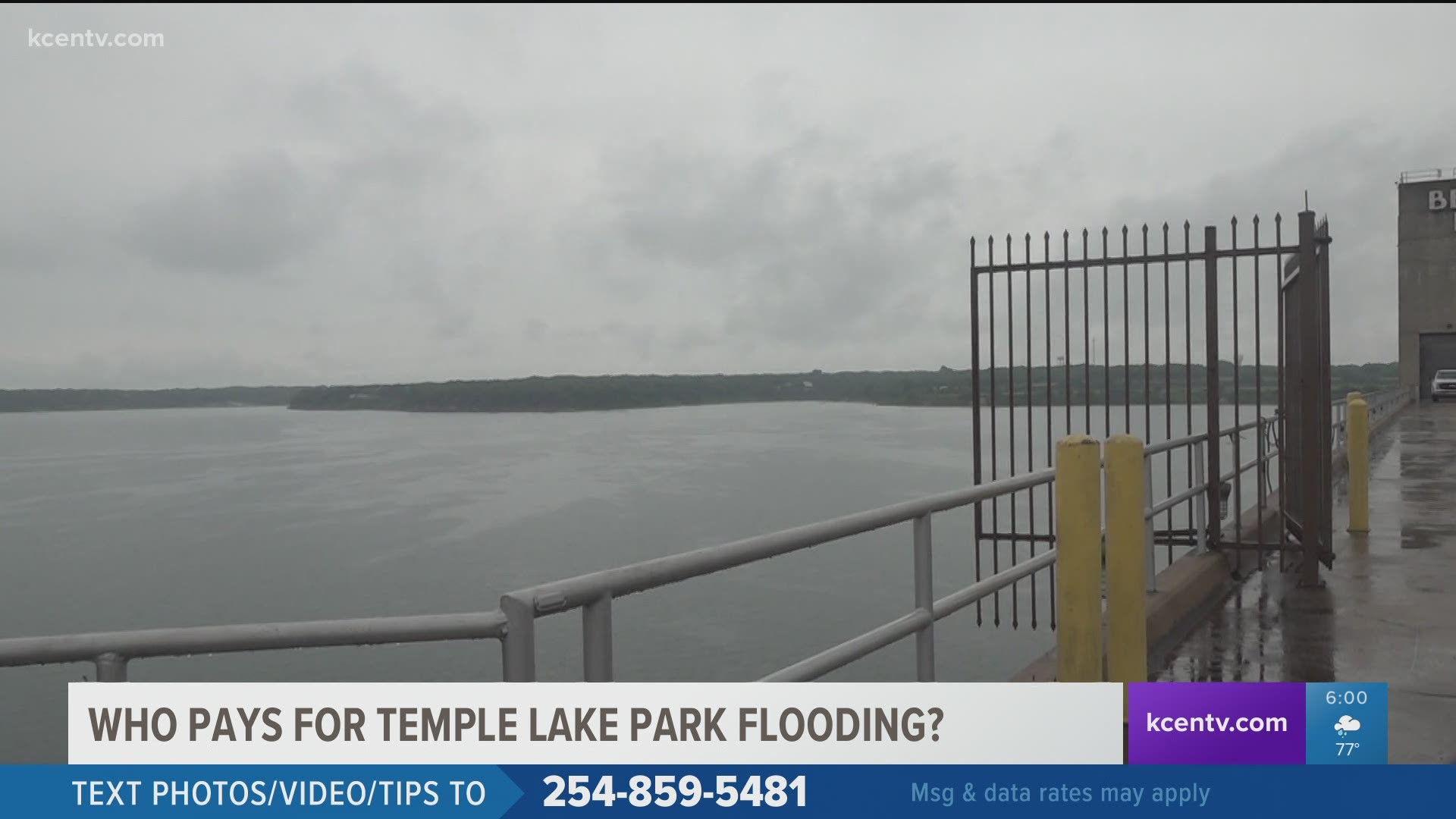TEMPLE, Texas — Temple Lake Park has lost its circular island look due to flooding as Belton Lake rises 6 feet above normal levels. After several days of rain, the ground is soaked and the lake is receiving water from all the way up the Leo River at Proctor Lake.
As part of the U.S. Army Corps of Engineers lake system, the lake is doing its job to prevent worse flooding downstream.
"While some of our rec facilities are impacted and we do close, we are preventing a lot of damage downstream. We are keeping homes from being flooded. We are keeping businesses from being shut down," Army Corps of Engineers Belton Lake Manager Joshua Brown said.
Brown told 6 News the Corps of Engineers has worked to mitigate the damage by removing breakers and plugs from camper pedestals. They can reinstall those after the flooding goes down so they don't have to be replaced.
At the same time, there will always be debris and trash that must be removed from park sites, dirt that must be removed from bathrooms and other items that need to be replaced.
Roads that are underwater must be shut down for two weeks.
The cost of that cleanup comes right out of the Corps of Engineers district operations and maintenance budget. They receive that money from Congress. While visitors pay for park services, that revenue actually goes all the way to the U.S. Treasury before being reallocated to parks and other programs.
The good news, however, is more park visits can actually lead to more funding in the Corps' yearly budget.
"It does help us compete for funding. The combination of the visits we have and the revenue that is generated here shows that we are a good project and a good thing for congress to fund," Brown said. "It helps us compete for more dollars."
Belton Lake parks get thousands of visitors each year.
There is another way locals can help the park as well. One of the most costly repairs for the local parks is the cost of repairing or replacing soaked roads that have been under water due to flooding. If the Corps of Engineers is able to barricade the road to keep people from driving on it for two weeks, however, that can mitigate the damage. Brown asks that people not go around such barricades or use roads to boat ramps if they have been underwater.
"We put up barricades where we can. We put that up for your safety and to protect the roads," Brown said.
Road repairs can sometimes require the Corps of Engineers to ask for additional budget packages to fund.
Brown also asks people going to the open sections of local parks to watch for debris while boating and refrain from swimming, as its difficult to know what is under the water when flooding occurs.

